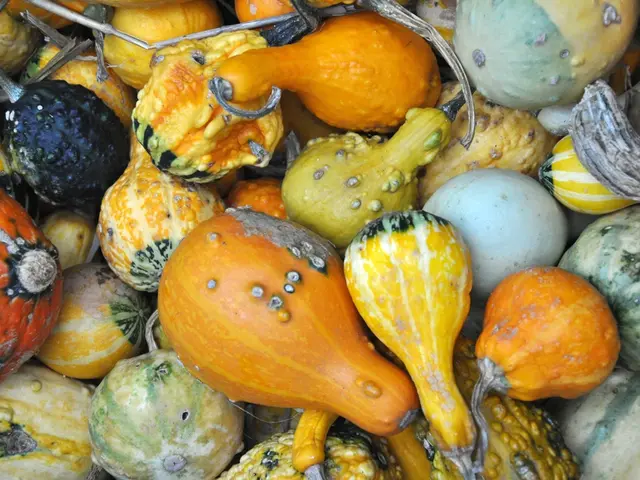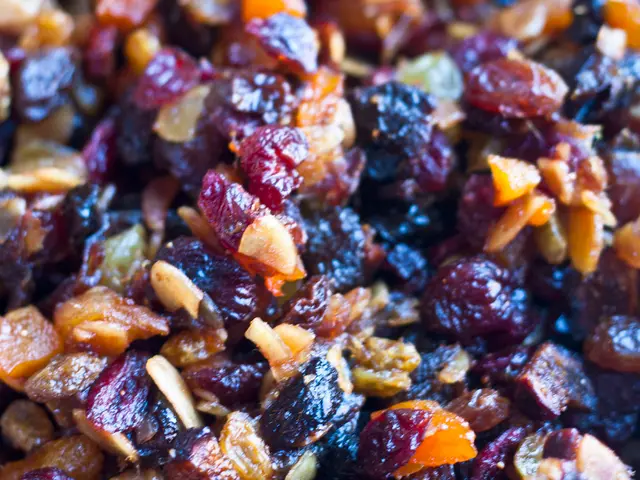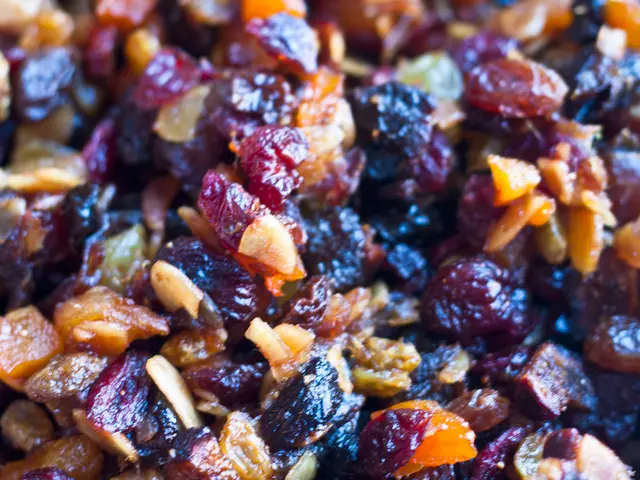Going Organic: A Safer Choice for Fruits and Veggies in Bavaria
Lower Levels of Pesticide Remnants Found in Organic Produce Continuously - Organic vegetables often contain lower levels of pesticide residue.
Discover the benefits of choosing organic products for a healthier diet.
Choosing fresh produce at stores and supermarkets can now be a safer bet, thanks to the assurance from the State Office for Health and Food Safety (LGL) in Bavaria. Their latest findings show that organic products have consistently lower levels of contamination with plant protection products. So, if you're conscious about what you eat, consider reaching for the organic section.
Unpolluted Organic Goods
For years now, no illegal pesticide residues have been found in organic fruits and vegetables, according to LGL statistics. As Magnus Jezussek, a pesticide expert at LGL, explains, "The majority of organic farmers cultivate their crops out of passion." In addition to washing and peeling your produce, and diversifying your choices, opting for organic provides an extra layer of assurance.
Between 2019 and 2024, at least 90 percent of organic food samples tested by LGL showed no detectable pesticide residues. In around 8 to 10 percent of samples, residues were found below the permitted limits. On the other hand, more than 70 percent of conventionally grown fruits and vegetables tested in the same period had detectable pesticide residues, with approximately 2 to 3 percent exceeding the maximum limits.
Many Pesticides Are Safe
Jezussek emphasizes that conventional fruits and vegetables are generally safe for consumers, as long as farmers and traders adhere to rules. The majority of pesticides used are considered harmless to the human body from a scientific perspective. This includes pesticides used in hop and wine cultivation, as the residues found in the resulting beverages consumed by consumers are insignificant, says Jezussek.
The monitoring and control efforts of food safety authorities in Germany are comparatively high compared to other EU countries, Jezussek points out.
Enrichment Information:
- Organic vs. Conventional Produce: Studies suggest that organic products generally have lower pesticide residue levels compared to conventionally grown produce because of the use of natural pest control methods and avoidance of synthetic pesticides in organic farming.
- Variability in Residues: The levels of pesticide residues in produce can vary based on factors such as farming practices, soil conditions, and the type of crop. Regular monitoring by food safety authorities ensures compliance with safety standards.
- To promote a healthier lifestyle in our community, consider implementing a policy that encourages vocational training in areas such as healthy-cooking and nutrition, focusing on food-and-drink choices.
- In line with prioritizing vocational training, we could offer sessions on organic farming and sustainable practices for our community members, helping them to grow their own produce at home for a safer food source.
- This initiative can further extend to workshops on science-based health-and-wellness, teaching techniques to prepare meals using organic and locally grown produce, emphasizing the benefits of healthy-cooking for individual well-being.
- With the knowledge gained from these workshops, community members could start a social enterprise that provides vocational training in organic farming, healthy-cooking, and sustainable living, positively impacting the health and lifestyle of individuals while supporting the local economy.








